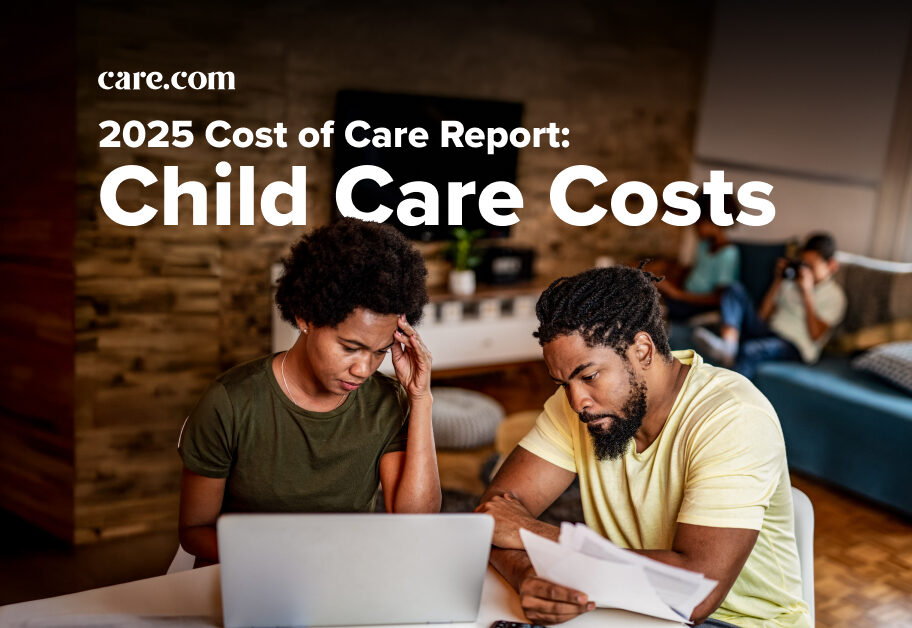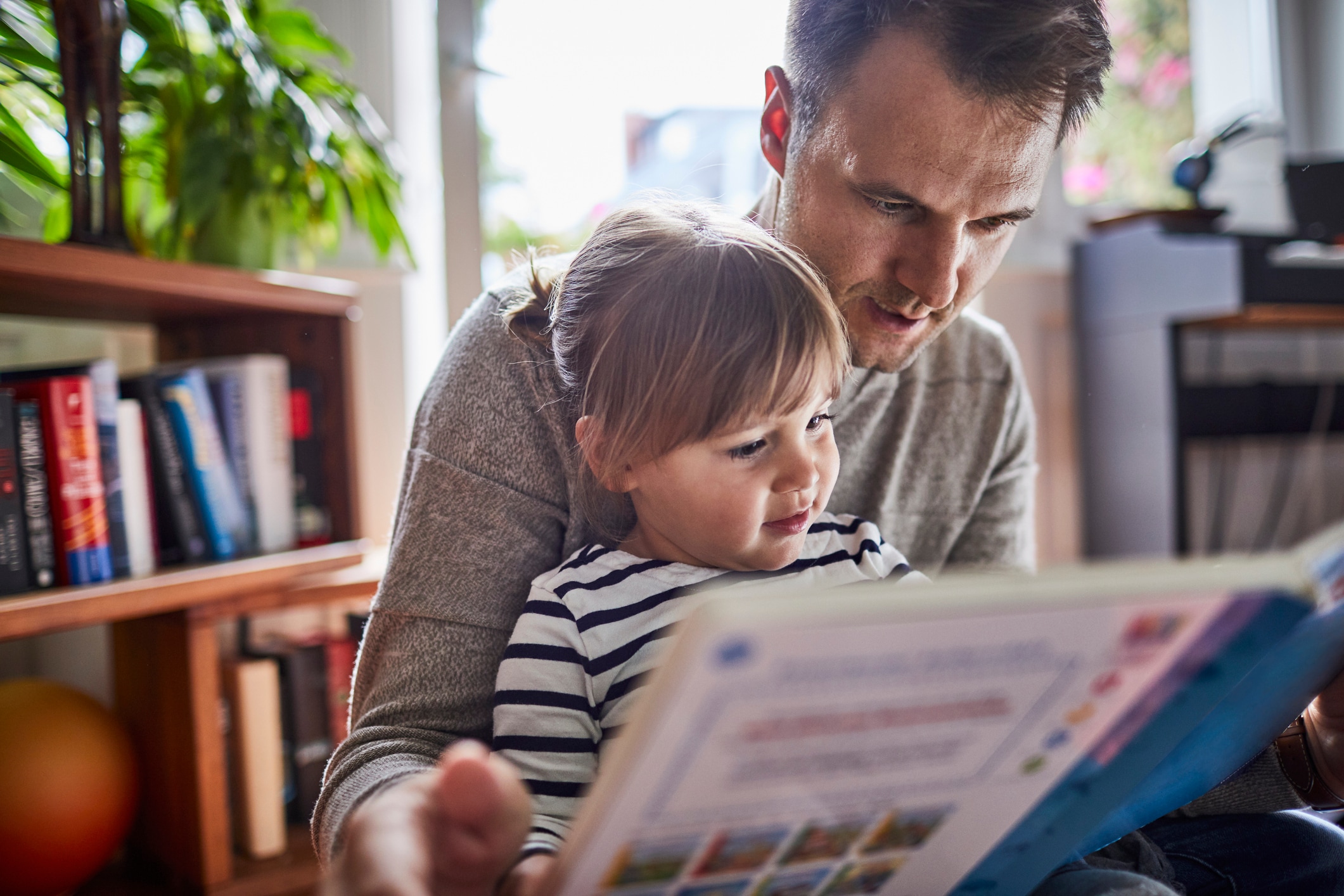It’s impossible to open Instagram or TikTok without coming across an aspirational video of a mom who clearly has this parenting thing all figured out. The family’s house is spotless, they’re wearing “real” clothes (instead of leggings and a T-shirt) and the children are happily engaged in an educational, screen-free activity. And while we’ve all heard the expression “comparison is the thief of joy,” it can be hard to avoid in this digital, influencer-heavy day and age. We are inundated with carefully curated feeds featuring other parents’ highlight reel.
But that heavily curated vibe, while appealing to millennial parents, doesn’t strike the same chord with the new generation of parents, according to a large-scale survey conducted by Culture Bureau, a consumer behavior, foresight and cultural intelligence consultancy. Gen Z creators, born between approximately 1997 and 2012, “are presenting parenthood very differently,” explains Kasi Bruno, the co-founder of Culture Bureau. “It’s far less polished and put-on. It’s spontaneous, more diverse, self-deprecating and overall more free-flowing in the way that real family life tends to be.”
And it’s this more relatable, authentic style that the new generation of parents trusts when seeking community and advice, according to the experts and parents we spoke to.
Why younger parents don’t trust aspirational influencers
Most Gen Z parents, who are currently 27 years old and younger, have grown up with social media and the “picture perfect” portrayals that show up on these platforms, says Jacqueline Nesi, who holds her doctorate in clinical psychology and is an assistant professor at Brown University and the author of Techno Sapiens, a weekly newsletter that discusses technology and parenting in the digital age. She adds that there is “a growing backlash against that kind of perfection,” with Gen Z parents seeking out and relating to content creators who are highlighting parenting experiences without the staged settings and matching outfits.
This observation is echoed by the findings of Culture Bureau’s survey, notes Bruno, who adds, “Gen Z parents look for information allies that keep it real.” For example, instead of posting a video that depicts toddlers eating a gourmet meal in a spotless, renovated kitchen, these influencers are mixing bottles with a baby under one arm and a stack of dishes in the sink in the background. “In keeping with this generation’s tendency towards authenticity, Gen Z parents are changing what parenthood – and influence – looks like online,” says Bruno. They’re also more discerning of and comfortable wading through vast amounts of information, including from influencers and when they encounter advertising for products that targets parents, she notes.
Historically, social media influencers haven’t offered “an authentic and real glimpse into [their] lives,” says Samuel Graff, a 24-year-old parent of one in Winona, Minnesota. Traditionally, influencers only share the “good” parts of their lives, and this results in content that many parents can’t relate to, he adds.
Emily Ross, a 22-year-old toddler teacher and parent of two in Iron River, Michigan, agrees. “Glossy ‘Instamom’ influencers set unrealistic expectations for motherhood,” she says. “I would rather see a mom that I can relate to, someone who is also in the trenches and is able to give practical advice.”
Graff also sees the move toward less idealized content as a response to Gen Z recognizing disparities between parents. Not every parent can afford or will cook the same foods; not every family has access to the same resources or knowledge. And “Gen Z is very big on breaking down social norms and challenging them,” he says. “[They are] more conscientious of the economic and social differences between different parents, and that there is no real ‘normal’ family or set of parents, and thus why I think there is less of an appeal in glamorized and/or inauthentic parenting influencers.”
“Gen Z is very big on breaking down social norms and challenging them. [They are] more conscientious of the economic and social differences between different parents, and that there is no real ‘normal’ family or set of parents, and thus why I think there is less of an appeal in glamorized and/or inauthentic parenting influencers.”
— Samuel Graff, 24-year-old parent of one in Winona, Minnesota
So, who do Gen Z look to for parenting advice?
Parents of all ages understand the value of building a village to support raising their children, whether that’s physical help in the form of child care, or less tangible ways, like resources and advice and sometimes just a different perspective. As the average age of first-time mothers goes up, according to the Center for Disease Control (CDC), this generation of young parents may have few parents close to their age, and their support network may end up looking a bit different, according to Bruno. They may have to get creative when it comes to seeking parenting support, whether it be physical or digital.
In order to do this, according to Culture Bureau’s research, these parents “rely on a network of old- and new-school information and influence gathering,” says Bruno, such as older friends, extended family and even social media influencers and their followers.
Older, more experienced parents
Ross connects with older parents via community resources, such as local mom groups and library activities geared toward parents and children.
In her research, Bruno found that the 22-year-old mom’s experience is a common one. “In our interviews, one Gen Z mom talked about how she had a few ‘fairy godmother figures’ — slightly older women at work who helped her navigate new parenthood” by passing down their older kids’ clothing, recommending parenting books and offering advice and guidance from their own experiences raising children.
Their partner
In a refreshing twist, when asked who influences them, Gen Z parents were the only group interviewed who said their partner showed up in a meaningful way. “Twenty-four percent of Gen Z parents said they go to their partner often for info on brands or products compared to only 16% of millennial parents who said the same,” says Bruno.
Ross agreed with this observation, stating that she goes to her husband for his advice and input on parental decisions frequently.
“Gen Z parents look for information allies that keep it real. In keeping with this generation’s tendency towards authenticity, Gen Z parents are changing what parenthood – and influence – looks like online.”
— Kasi Bruno, co-founder, Culture Bureau
A variety of creators, brands and other digital sources
In addition to seeking parenting advice from people in their daily lives, Gen-Z parents are very comfortable navigating the plethora of information available to them via sources like TikTok, YouTube and even brand videos/ads, says Bruno. This wide net of information gathering “shows us how there isn’t any solid community for Gen-Z parents yet — no one person or place that really gets them,” says Bruno. “They really are open to influence and information from many different people and places.”
For Ross, following parenting creators whose kids are the same age as her own allows her to “connect with a community that is experiencing a similar stage of parenthood.” As she is currently parenting a toddler, she appreciates content that discusses different parenting techniques, such as for handling big emotions or navigating sharing toys.
And while most of the parenting content Graff comes across is via Instagram’s algorithm versus his own curation, he finds that it often helps him stay present and focused on what’s important: “I find the benefits that I get from parenting content comes from just everyday reminders of the difficulties of parenthood, and how to find the joys in the midst of it all,” he says. For example, Graff connects with posts that highlight the fleeting nature of childhood and remind him to be patient and present, like a reel featuring princess dresses and toys spread around the house. The message reminds him to cherish these moments with his young daughter, as he may miss the “mess” someday.
That said, there are pros and cons for a parent’s well-being associated with turning to social media for support, says Nesi, citing a study from Research in Nursing & Health on the impacts of influencers during pregnancy and parenting.
The study found that while “engaging with [social media influencers] and their followers can satisfy informational deficits and foster supportive communities, there is also the potential for harm, owing to the capacity for transfer of misinformation, being ‘marketed to,’ and undesirable online interactions resulting in feelings of envy and poor perceptions of parental identity.” In other words, Gen Z parents are illuminating this dichotomy of parenting content having the potential to be helpful or hurtful and are savvy at navigating and moderating their social media intake to avoid the negative consequences.
The bottom line on Gen Z’s relationship to parenting influencers
Because Gen Z parents “are the first and only of their friends to have kids, they have to look for parenting advice and community outside their traditional social circles,” says Bruno. And Culture Bureau’s research has shown that they want to be “seen, not sold to — a huge shift from the millennial parent marketing playbook,” she adds.
This means they not only seek but require authenticity from their digital village, in the absence of an accessible and stable physical community. As Ross sums it up, “Seeing other mothers that show the behind-the-scenes of the glamorous ‘Instamom’ aesthetic allows me to feel that I am not alone. The sink full of dishes and the unfolded laundry are all part of the experience.”





